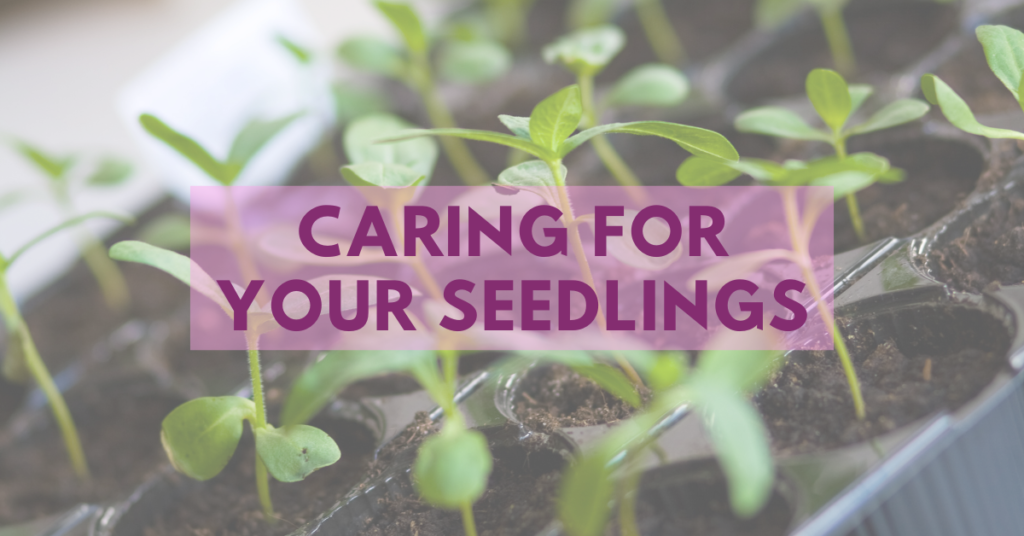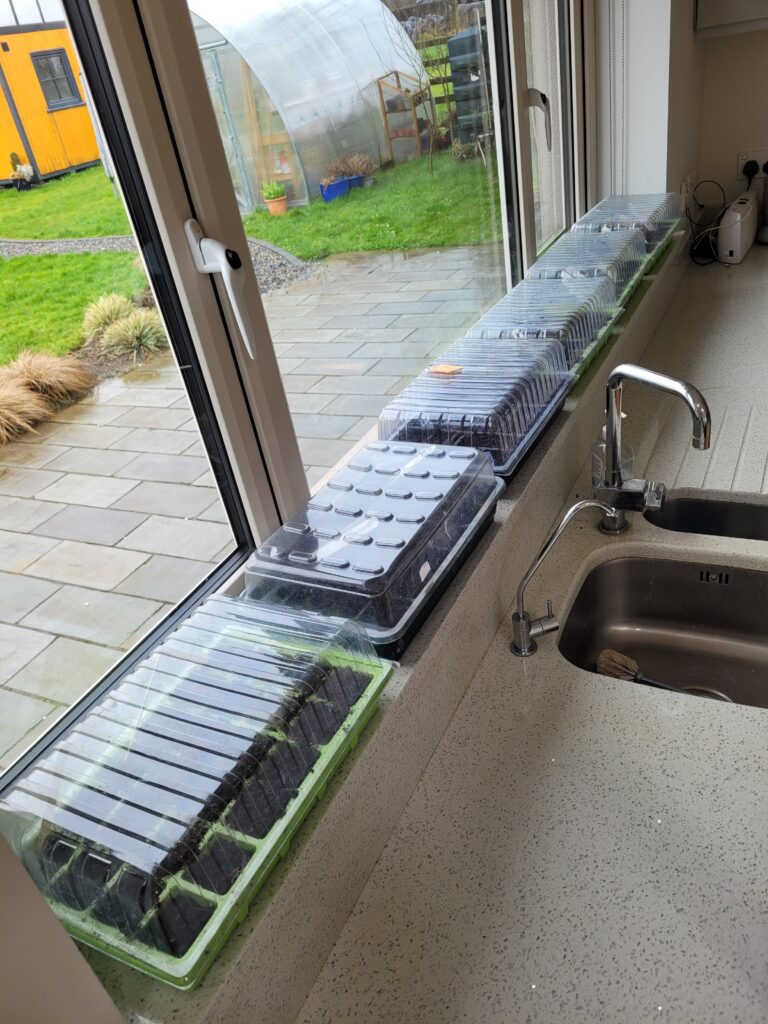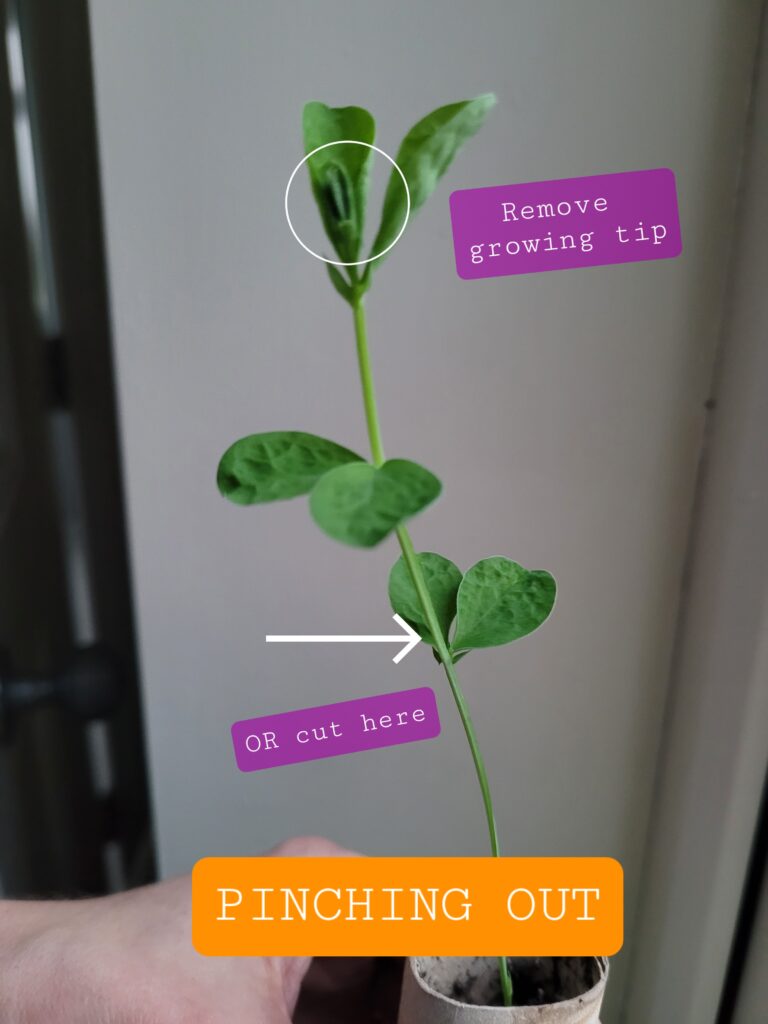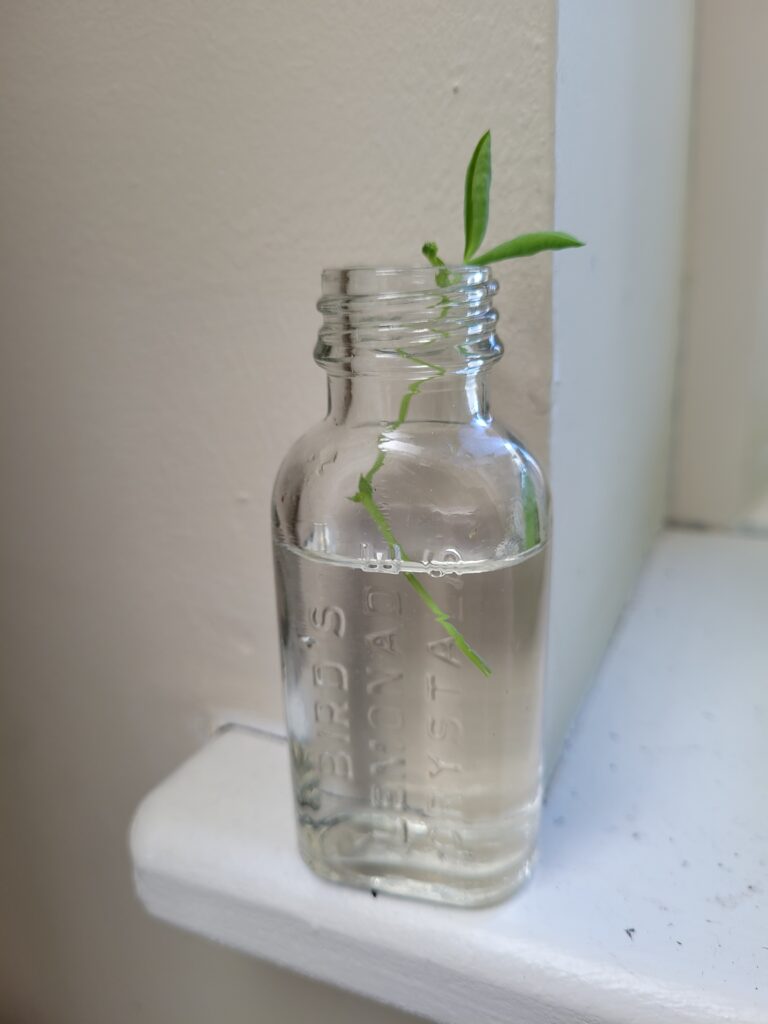
Congratulations! You sowed your seeds and now they are sprouting. Woohoo. But now what? Don’t worry, there is only a couple of easy steps to having lots of flowers later in the season.
1. Light

Light is one of the main triggers for seeds to germinate. Up until the Spring equinox in March, the nights are still longer than the day and with the sun still low in the sky, every little bit of extra light you can give your seed babies counts. If you don’t have a greenhouse, find your brightest windowsill. Bonus points here if you can find a spot with a roof light. An area lit from above will always be brighter than that with a regular window. While tall seedlings can look impressive when you are starting out but bushier, stronger ones are preferable. If you see your seedlings stretching towards the light, they probably aren’t getting enough.
2. Water
Once your seeds show shoots, you can remove the lid. This is generally a good idea because the lack of ventilation will eventually bring mould but also on the brightest windowsills, the condensation that falls onto the plant leaves can be scorched in direct sunlight.
Seeds germinating under cover of a propagator lid or plastic bag probably won’t need extra watering until after they have sprouted. The container acts as a closed system with the condensation that forms on the lid or bag falling back down on the compost.
If your seeds are germinating without a cover, you need to keep an eye on them on a daily basis for water as they will dry out far more quickly. If there is a heat source close to your windowsill, it could be faster still.
Remember we are aiming for damp or moist rather than wet and definitely not sodden. I find it much easier to use a watering can with a long, narrow spout to control the very small amount of water needed. A spray bottle can also work really well.
3. Pinching Out
This is a step that is optional but very much worthwhile. The point here is to remove the growing tip of a seedling to promote it to grow more offshoots and develop into a bushier, sturdier plant with more blooms. For beginners, this can be a scary step. I know what it is like to be so delighted to have plants germinate and have a few sets of leaves that the idea of undoing any of this amazing growth seems totally counterintuitive.
Flowering plants that benefit from pinching out are Sweet Peas, Dahlias, Cosmos, Antirrhinums
The plant must have three or four sets of seeds to sustain the operation and there are two options. The usual action is to remove only the growing tip or bud at the very top of the plant by pinching it out with your thumb and forefinger. However, if you have a ‘leggy’ (long, straggly) plant, you can use a scissors to cut just above the first set of true leaves. The section cut away can be put in a small vase or bottle of water to root and can be potted up as more plants in time. Otherwise, they are for composting.
Following these simple steps will set your seedlings on the right road to develop into robust plants that will produce tons of blooms for you. Seedlings that have been planted with multiple seeds together will need to be ‘pricked out’ or moved into individual pots and I will follow up with another blog post for that soon.


In the meantime, if you are unsure of any of the info in this post, you can check out my YouTube video on the topic and if you have any questions, don’t forget to join the free Facebook Community. If you would like to get started with seeds, here’s a handy guide to download My Top 10 Flower Seeds for Beginners.